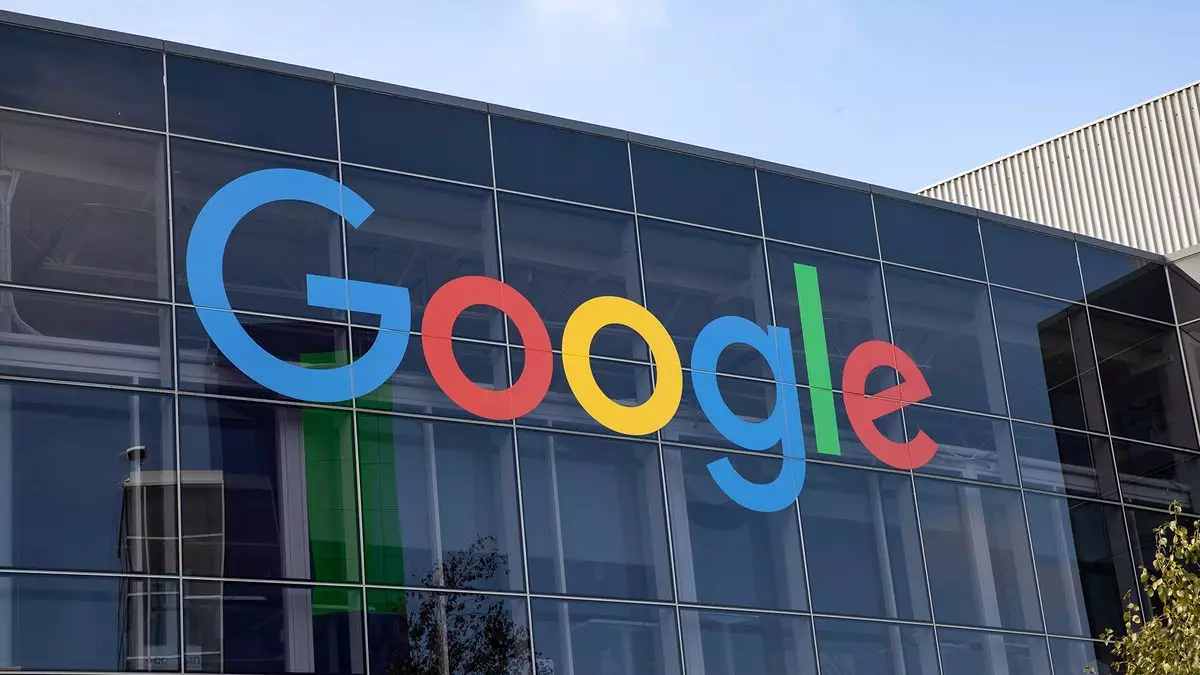The world of technology, especially in the heart of Silicon Valley, often feels like a different universe where numerical values are detached from the common understanding of money. In this realm, millions may be seen as trivial amounts while billions hardly register as significant. Recently, Google, the tech behemoth under Alphabet, experienced a notable legal triumph that now serves as a focal point for discussions around corporate regulation, competition, and accountability in the digital marketplace.
Google’s recent appeal success, resulting in the annulment of a €1.49 billion fine, accentuates the ongoing tussle between Big Tech and regulatory authorities, particularly in Europe. Initially imposed by the European Commission (EC) in 2019, this fine was predicated on allegations of antitrust violations. The EC’s contention was clear: Google was said to have manipulated its dominant market position to stifle competition in online advertising. This manipulation reportedly involved exclusive contracts with publishers that restricted rival advertisement placements on predominant websites.
The EC’s stance was not merely a matter of financial penalties; it aimed to send a message regarding fair competition in the digital sphere. The court articulated its concerns over Google’s strategies, specifically mentioning “exclusive supply obligations” and a subsequent “relaxed exclusivity” framework that allegedly ensured that Google maintained a chokehold over lucrative advertising spaces. However, the recent ruling from Europe’s General Court reflects a nuanced understanding of competition law. While it acknowledged some of the EC’s findings, it also underscored the absence of conclusive evidence linking Google’s practices directly to consumer harm or a demonstrable detriment to innovation.
For Google, the successful appeal would seem to provide relief in an otherwise troubled legal atmosphere, yet the broader implications cannot be overlooked. Despite the annulment of this particular fine, Google remains embroiled in numerous legal challenges, including a staggering €2.4 billion fine recently upheld in another case—a sign of the precarious landscape tech giants navigate today. Moreover, a recent ruling by a US Judge found Google in violation of antitrust laws relating to its advertising practices, indicating a pattern of inquiries into the company’s conduct.
These legal entanglements signal a critical moment for not only Google but for the entire tech industry. Authorities are increasingly scrutinizing the operations of these giants, examining how their business strategies can potentially undermine competition and yield adverse effects for consumers. The legal framework surrounding antitrust issues has evolved, prompting a re-evaluation of what constitutes fair competition in an ever-advancing digital world.
The perception of tech companies is rapidly shifting as they grapple with their influential roles in shaping the digital economy. While Google may have celebrated this particular legal victory, it remains under the watchful eye of regulators and public opinion. With billions in fines looming and various lawsuits, Google faces a lengthy alignment process to rectify any perceived missteps while simultaneously protecting its corporate reputation.
Furthermore, the implications of these legal trials extend beyond mere financial penalties. They embody a growing accountability framework for tech enterprises, compelling them to develop ethical business practices that align with consumer interests and market fairness. As scrutiny intensifies, these companies are tasked with the challenge of not only remaining innovative but also transparent and responsible.
Looking forward, Google and its peers must navigate a complex tapestry of legal requirements and public expectations. While the recent overturning of the €1.49 billion fine offers a brief respite, it also highlights an essential truth: the landscape of tech regulation is dynamic and unpredictable. With regulators worldwide tightening their grip on big tech power, companies must cultivate strategies that prioritize compliance and ethical business conduct.
As 2024 approaches, tech giants must adapt to a new reality where financial success is intertwined with social responsibility and market fairness. Google’s impending challenges serve as a reminder that in a world increasingly defined by digital interaction, maintaining a balance between corporate power and consumer rights is vital for a sustainable future in tech. While legal victories may come and go, the focus must shift toward building a regulated environment conducive to healthy competition and innovation, bearing far-reaching impacts for years to come.


Leave a Reply